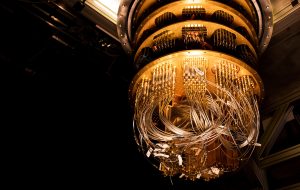Majorana Zero Modes : Quantum Computing

Researchers at Microsoft have announced a breakthrough in creating Majorana zero modes, a type of particle that could greatly advance quantum computing.
- Majorana zero modes are unique particles that could make quantum computers less fragile and more computationally powerful.
- The particles, also known as Majorana fermions, were first proposed by Italian physicist Ettore Majorana in 1937.
- They possess special properties that make them their own antiparticles, which is advantageous for building quantum computers.
- Majorana zero modes can be used as qubits, the fundamental units of information in quantum computing, and have the potential to protect encoded information from decoherence, a major challenge in quantum computing.
- These particles could enable topological quantum computing, which offers computational advantages and additional degrees of freedom for algorithms.
- Majorana zero modes have not been directly observed yet, and further research and improvements in technology are needed to fully realize their benefits.




